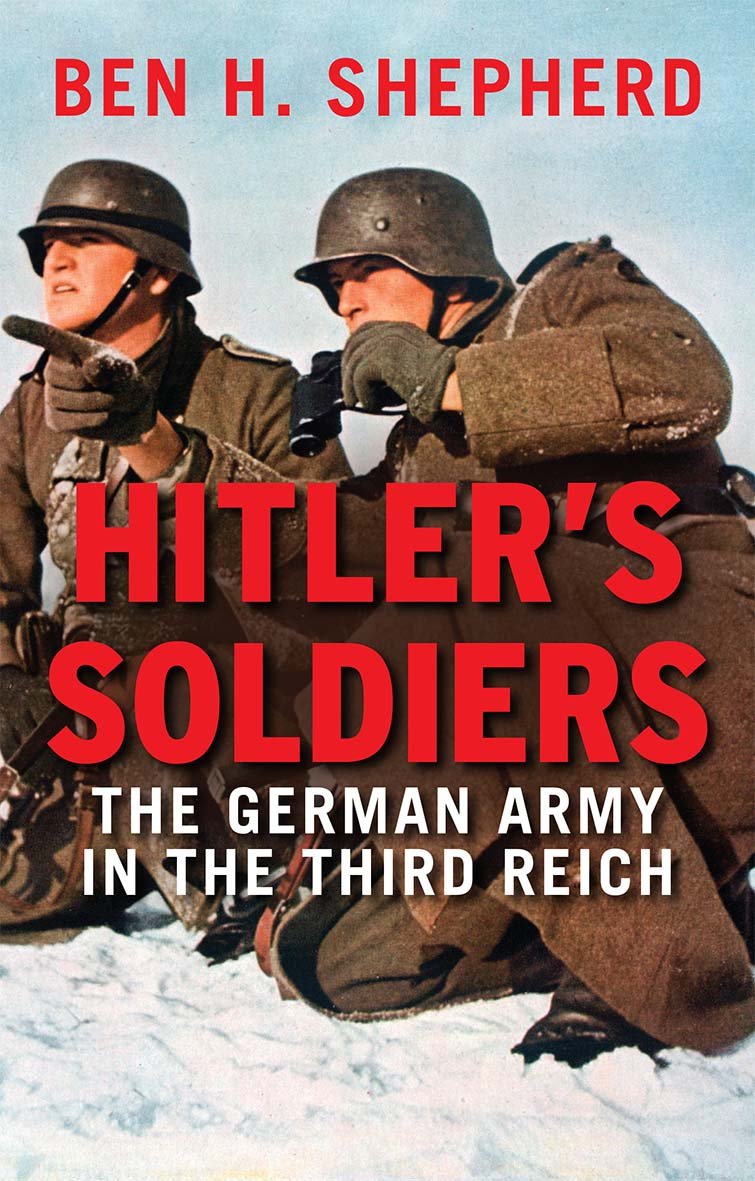Hitler’s Soldiers: The German Army in the Third Reich
£12.30
For decades after 1945, it was generally believed that the German army, professional and morally decent, had largely stood apart from the SS, Gestapo, and other corps of the Nazi machine. Ben Shepherd draws on a wealth of primary sources and recent scholarship to convey a much darker, more complex picture. For the first time, the German army is examined throughout the Second World War, across all combat theaters and occupied regions, and from multiple perspectives: its battle performance, social composition, relationship with the Nazi state, and involvement in war crimes and military occupation.
This was a true people’s army, drawn from across German society and reflecting that society as it existed under the Nazis. Without the army and its conquests abroad, Shepherd explains, the Nazi regime could not have perpetrated its crimes against Jews, prisoners of war, and civilians in occupied countries. The author examines how the army was complicit in these crimes and why some soldiers, units, and higher commands were more complicit than others. Shepherd also reveals the reasons for the army’s early battlefield successes and its mounting defeats up to 1945, the latter due not only to Allied superiority and Hitler’s mismanagement as commander-in-chief, but also to the failings―moral, political, economic, strategic, and operational―of the army’s own leadership.
Read more
Additional information
| Publisher | Illustrated edition (29 Aug. 2017), Yale University Press |
|---|---|
| Language | English |
| Paperback | 664 pages |
| ISBN-10 | 0300228805 |
| ISBN-13 | 978-0300228809 |
| Dimensions | 15.24 x 3.81 x 22.86 cm |










by Marcus Woodhouse
A solidly researched book. It’s not strictly about soldiers though.
by Thomas Walsh
I loved this book. Like many people I have been puzzled by the behaviour of the German army during the Second World War. How could highly educated and cultured people of all ranks descend into barbarism? In this book Dr. Shepherd makes a praiseworthy and convincing argument based on exhaustive research as to why this happened. In terms of “can’t put it down readability”, it is up there with the best of Max Hastings, Saul David and Peter Cadick Adams et al.
by JaketheDax
This is a superbly researched, richly weighed analysis of The German Army. The reader is not assailed by meaningless statistics or lost in military titles and the names of skirmishes. Rather, Shepherd provides an assessment elevated by an engaging prose, that sifts the evidence and which judges in fine nuances.
I would say this ‘Hitler’s Soldiers’ is one of the finest books on The Second World War that I have ever read.
by J. H. C. Leach
OK, if hardly exciting
by Bobby Smith
Absolutely superb book on the German army in WW2 covering, as it does, both the military and moral side of the Wehrmacht. For me, I found the occupation of the conquered territories to be the most interesting angle of the book as the author shows how the army suffered a gradual morale decline, as fortune turned against them in the war. The partisan war in Yugoslavia and Italy was a real highpoint, as these areas are often neglected in other reference works. The narrative was highly readable and the research top notch. Tank fans will be pleased about the constant comparisons between T-34s, Mark 4s and the rest. Indeed, it is such a good book that the only quibble I can find in it is where he asserts that the Sturmovik was an inferior plane to the Stuka – a debatable point at best. Still, a minor point in what is an outstanding piece of work.
by Elaine Thomson
Bought as a present for my husband. He doesn’t like the writing style but that’s a personal choice.
by Keith F. Massey
It’s really too early to give a full review as I have not nearly finished the book. So far I can say that it is very readable and actually enthralling as the story unfolds.
The account is full of interesting facts, but not at all dry.
I agree entirely with the other favourable reviews.
by James Mccaig
A magisterial work which exposes the myth that the Wehrmacht did not participate in the horrors of the Third Reich. Scholarly in nature but with a style which makes it accessible this tome is a must for students of the period.